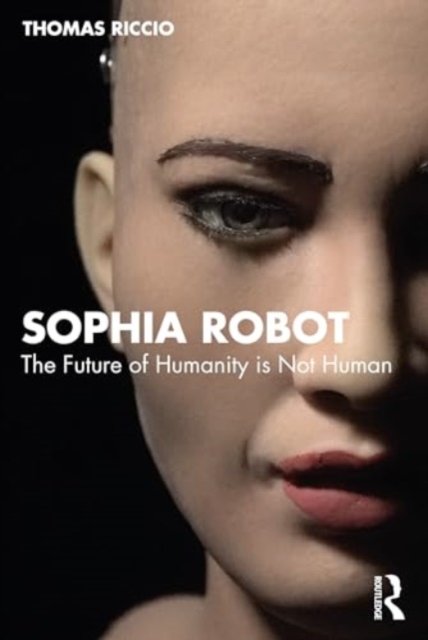
Sophia Robot : Post Human Being Paperback / softback
by Thomas Riccio
Part of the Routledge Advances in Theatre & Performance Studies series
Paperback / softback
Description
This book considers David Hanson’s robots as a performative expression of our cultural moment, serving as a paradigm for the evolution of humanoid social robots. Mechanical beings have occupied the human imagination since antiquity.
Now, they inhabit the pop-cultural imagination, embodying the apotheosis of humanity’s technological aspirations and dread.
Sophia, Hanson’s most advanced robot, anticipates the future as she articulates the mythic pattern, narrative, anxieties, and hopes as old as humanity.
Gendered as an attractive female with a face inspired by Queen Nefertiti and Audrey Hepburn, Sophia is a cipher, avatar, and turning point that brings humanity and technology a step closer to the emergence of a post-human species.
The author is a transdisciplinary artist/scholar/educator working internationally in experimental performance, indigenous performance (ritual, shamanism), and social robotics.
Hanson’s robots and Sophia are examined as performance media and events, as characters evolving as post-human narratives of technological beings.
The emergent, complex, and collaborative relationships social robots have with technology, AI, performance, anthropology, mythology, psychology, sociology, popular culture, social media, politics, and economics are considered.
Information
-
Pre-Order
- Format:Paperback / softback
- Pages:370 pages, 36 Halftones, black and white; 36 Illustrations, black and white
- Publisher:Taylor & Francis Ltd
- Publication Date:14/06/2024
- Category:
- ISBN:9781032454108
Other Formats
- Hardback from £130.00
Information
-
Pre-Order
- Format:Paperback / softback
- Pages:370 pages, 36 Halftones, black and white; 36 Illustrations, black and white
- Publisher:Taylor & Francis Ltd
- Publication Date:14/06/2024
- Category:
- ISBN:9781032454108










